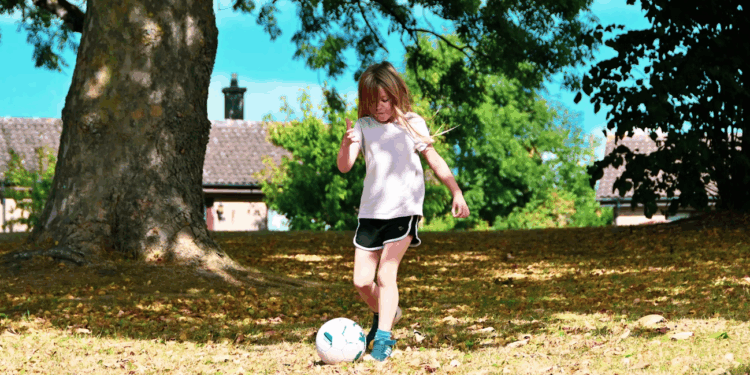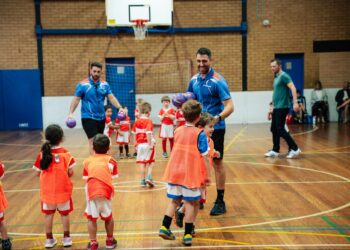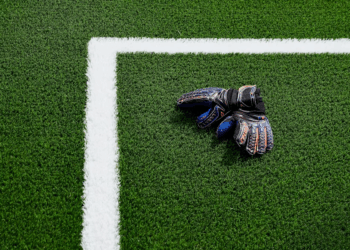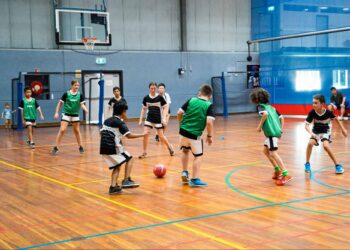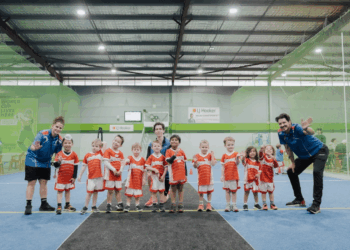When parents sign their daughters up for sport, they often think about fitness, fun, and friendship. Few realise they’re also opening the door to something even more powerful: leadership. Ninety-four percent of women in executive leadership once played competitive sports. The statistic is striking—and it tells us something profound about the link between the field and the boardroom. For children, sports are more than a game; they are the first arena where confidence, teamwork, and resilience are tested and built. And while these lessons benefit all young athletes, a report shows they can be especially transformative for girls, equipping them with skills that carry into future leadership roles.
The Early Years and How Soccer Builds More Than Motor Skills
Early childhood sports development goes far beyond teaching children how to kick a ball or run faster. When young athletes participate in organised sports, they’re developing critical life skills that create more balanced and successful adults. These formative experiences lay the groundwork for habits and attitudes that will serve them throughout their lives.
Setting the Stage for Lifelong Health
One of the most immediate benefits of early sports participation is the establishment of healthy lifestyle habits. Children who engage in sports develop a joy for physical activity that often translates into lifelong fitness habits. This early exposure to structured exercise creates positive associations with movement, teamwork, and goal-setting that extend far beyond childhood.
But the benefits run much deeper than physical fitness. Young athletes learn to navigate competition, handle both victory and defeat, and understand the value of consistent practice and improvement. These lessons become the building blocks for resilience, determination, and leadership qualities that will emerge more fully as they mature.
What the Numbers Tell Us
The statistics are striking and impossible to ignore. According to research by espnW, 94% of women in executive positions played competitive sports. This isn’t a coincidence. It’s evidence of the powerful connection between athletic participation and leadership development.
The numbers become even more compelling when we look at university-level participation. Ernst & Young’s comprehensive studies found that 55% of executive-level female respondents participated in sports at university levels, compared to just 39% of other female managers. This suggests that higher levels of competitive sports participation correlate with greater leadership success.
Real Skills for Real Success
A 2018 HSBC survey of 684 Australian women who played team sports revealed that 98% agreed that their sports participation had increased their professional confidence and contributed to career success. When asked about the most valuable skills developed through sports, the responses painted a clear picture of leadership development:
- Teamwork (23%): Learning to collaborate effectively and leverage diverse strengths
- Mental strength (13%): Building resilience and the ability to perform under pressure
- Confidence (12%): Developing self-assurance and the courage to take on challenges
- Time management (8%): Mastering the art of balancing multiple priorities
- Ambition (8%): Cultivating the drive to pursue and achieve goals
Breaking Down Barriers Through Competition
Competition early in life seems to particularly help women break down barriers in the workforce. While the corporate world has historically been challenging terrain for women seeking leadership roles, those with sports backgrounds appear uniquely equipped to navigate these challenges.
Ernst & Young’s research reinforces this connection, finding that female executives consistently attributed their success to skills and attitudes fostered through sports participation. These included:
- Strong work ethic: The discipline required for athletic training translates directly to professional dedication
- Determination: Learning to push through setbacks and maintain focus on long-term goals
- Team building: Understanding how to motivate others and create cohesive, high-performing groups
- Problem solving: Developing the ability to think strategically and adapt to changing circumstances
The Soccajoeys Advantage: Starting Early, Aiming High
For parents considering sports participation for their daughters, the evidence is clear: you’re not just investing in athletic development—you’re investing in leadership potential. Soccer, with its emphasis on teamwork, strategic thinking, and continuous play, offers particularly rich opportunities for developing these crucial skills.
The beauty of starting young is that these lessons become deeply ingrained. Children who learn to communicate effectively with teammates, handle pressure situations, and work toward collective goals are developing neural pathways that will serve them in boardrooms decades later.
Beyond the Game: Lifelong Impact
The impact of early sports participation extends far beyond the immediate benefits of physical fitness and team skills. When we invest in youth sports programs, we’re creating pathways to leadership that might not otherwise exist. We’re teaching young women that they belong in competitive environments, that their voices matter in team settings, and that they have the capability to lead others toward shared goals.
The research makes one thing abundantly clear: the path from the playground to the boardroom is well-traveled by female athletes. By encouraging sports participation in girls, we’re not just supporting healthy childhoods—we’re cultivating the next generation of female leaders who will shape our organisations, communities, and society.
Your Daughter’s Leadership Journey Starts Here
Every time your daughter takes the field, she’s taking another step toward becoming the confident, capable leader she’s meant to be. The lessons learned through sports—resilience, teamwork, strategic thinking, and grace under pressure—are the same qualities that distinguish great leaders in every field.
At Soccajoeys, we’re proud to be part of this journey, helping young athletes develop not just their soccer skills, but the character and confidence that will serve them throughout their lives. Because when we invest in young female athletes today, we’re investing in the leaders of tomorrow.
Want to encourage your daughter to participate in sports? From Out of School Hours programs and soccer classes for toddlers (2.5-3 year olds) to 9-11 year-old classes for kids wanting to grow their skills, and even soccer programs run at schools, there’s so many ways for them to join in.



